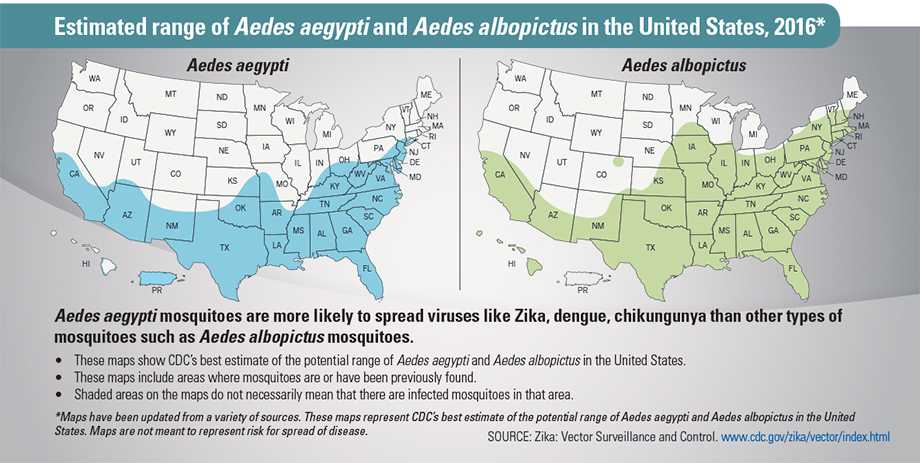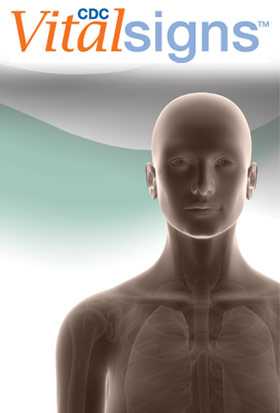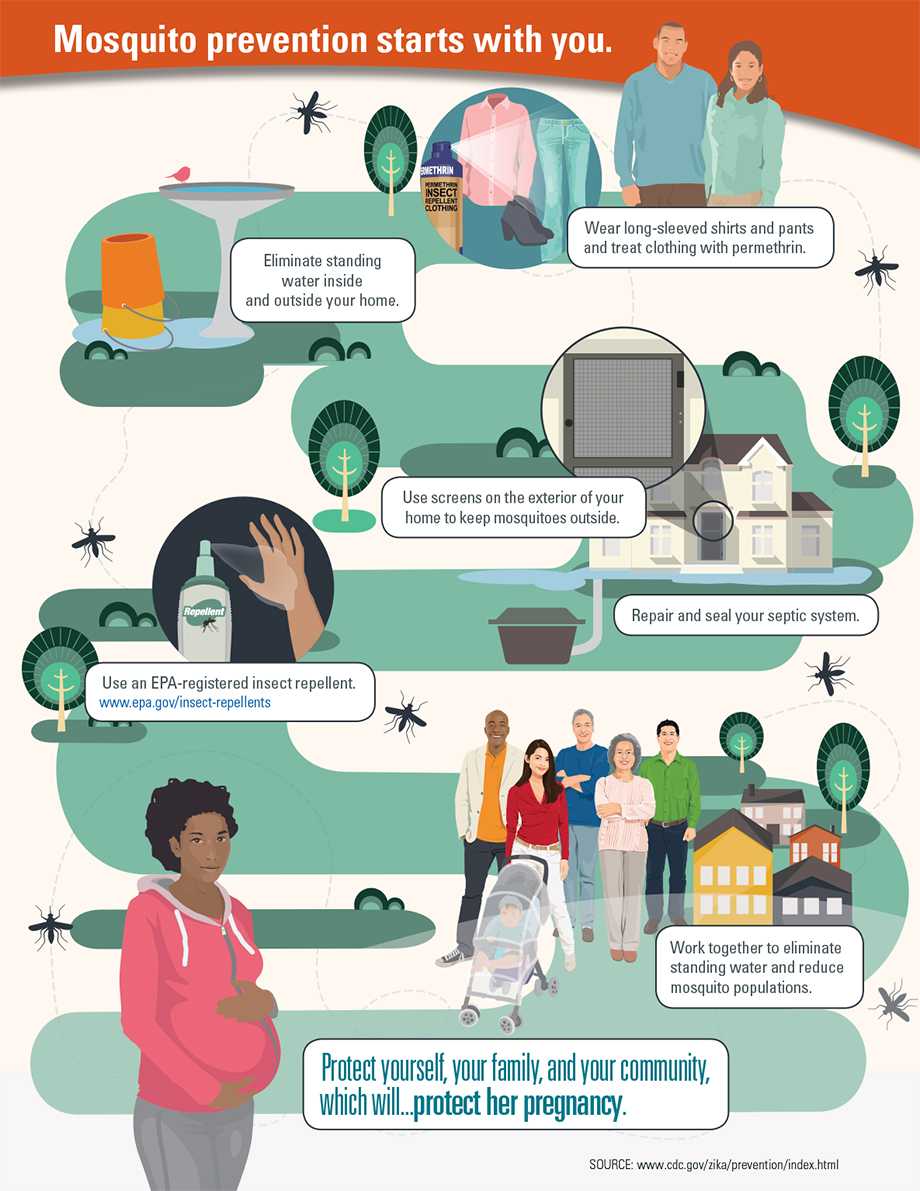Zika and Pregnancy
What you should know
Overview
Zika virus disease (Zika) spreads to people mainly through the bite by two species of infected mosquitoes, one of which is more likely to transmit Zika. In past outbreaks, most people have not gotten sick, so people may not even know they are infected. Based on current knowledge, the greatest risk for complications from Zika is to a pregnant woman’s fetus. If a pregnant woman is infected with Zika, she can pass the virus to her fetus. Zika has been linked to cases of microcephaly, a serious birth defect, and is a sign that the baby is born with a smaller brain, which can result in medical problems and impaired development. Researchers are working to understand more about how Zika affects pregnant women and fetuses.
To protect the pregnancy, couples can:
- Check CDC travel guidance; pregnant women should avoid travel to any area with Zika. www.cdc.gov/travel/page/zika-travel-information.
- Talk to her doctor or other healthcare provider first, if she must travel to an area with Zika.
- Prevent mosquito bites, including covering up arms and legs and using EPA-registered insect repellent, which is safe to use during pregnancy.
- Use latex condoms, the right way, every time or choose not to have any type of sex if the male partner has been in an area with Zika during the pregnancy.

#1 Mosquitoes are the deadliest animals in the world because of the diseases they spread.
A female mosquito infected with Zika can continue biting people over its lifespan of about 30 days.
Only 2 known species of mosquitoes spread Zika, out of 176 species of mosquitoes identified in the US.
Problem
Zika–a health threat for some people.
What we know.
- There is no vaccine or medicine for Zika.
- Zika may spread through mosquito bites in some states later this spring and summer. Based on US experiences with similar viruses (dengue and chikungunya), we know that states, like Florida, Hawaii, and Texas, may well have cases or small clusters of diseases that are spread by infected mosquitoes. Additional states may also be at risk.
- Some infected people will get mild symptoms (fever, rash, joint pain, or red eyes) for up to a week but most people won’t even know they are infected.
- Zika has been linked to microcephaly, a serious birth defect, and is a sign that the baby is born with a smaller brain, which can result in medical problems and impaired development. www.cdc.gov/ncbddd/birthdefects/microcephaly.html
- Zika can be passed from an infected man during sex. To date, we have not seen transmission from a woman during sex. The man gets infected by mosquito bite and spreads it to his partner through unprotected sex. This is preventable by using condoms, the right way, every time during all types of sex.
What we don’t yet know yet.
- If you’re pregnant: How likely is it that your fetus will have birth defects if infected? When during a woman’s pregnancy is the fetus most vulnerable and when can the virus be detected? How likely are you to get infected with Zika and pass it on?
- How often does a man spread Zika through sex and how long does the virus stay in semen?
- Which states, with certainty, may be affected by Zika?
- For updated information about areas with Zika, go to www.cdc.gov/zika/geo/index.html.
There are many possible answers to these questions. See “What can be done” section for more information.

What Can Be Done
The Federal government is:
- Working with states and international partners to:
- Research mosquitoes and the link between Zika, microcephaly, and other adverse health outcomes.
- Monitor Zika infections in mosquitoes and people to strengthen our response.
- Improve laboratory testing for Zika by making testing available through CDC and helping states and international partners build capacity to test.
- Post travel notices and advise those going to or returning from areas with Zika. Provide up-to-date information on Zika as it is known.
- Accelerate the development of a vaccine, and improved diagnostic tests and mosquito control tools.
- Working with Congress to secure support for domestic and international Zika preparedness and response efforts.
If pregnant, couples can:
- Check CDC travel guidance; pregnant women should avoid travel to any area with Zika. www.cdc.gov/travel/page/zika-travel-information
- Talk to her doctor or other healthcare provider first, if she must travel to an area with Zika.
- Prevent mosquito bites, including covering up arms and legs and using EPA-registered insect repellent, which is safe to use during pregnancy
- Use latex condoms, the right way, every time or choose not to have any type of sex if the male partner has been in an area with Zika during the pregnancy.
State and local public health agencies can:
- Develop, refine, and implement state preparedness and response plans tailored to the jurisdiction’s risk for Zika.
- Develop capacity to test for Zika or send samples to CDC for testing.
- Report laboratory-confirmed cases to CDC through ArboNET, the national tracking system for diseases spread by mosquitoes, ticks, and other insects.
- Start or increase mosquito surveillance, testing, and control activities.
- Provide healthcare providers with timely information about Zika and cases in the state.
- Educate communities about Zika virus and how to prevent mosquito bites.
Healthcare providers can:
- Know the symptoms of Zika and ask patients about their travel history.
- Participate in the US Zika Pregnancy registry or, if in Puerto Rico, the Zika Active Pregnancy Surveillance System (ZAPSS).
- Contact their state and local health departments for laboratory testing.
- Offer testing to pregnant women and others with symptoms of Zika who have traveled to areas with Zika.
- Educate a pregnant woman and her partner on preventing Zika.
- Call CDC and the state or local health department for clinical consultation. Notify state and local health departments when they have cases of Zika.
Issue Details
- Vital Signs Issue details: Zika and pregnancy, Morbidity and Mortality Weekly Report (MMWR)
- Vital Signs – Zika and preganancy [PODCAST – 1:15 minutes]
- Vital Signs – Zika and pregnancy [PSA – 0:60 seconds]
- CDC Zika Website
- MMWR Zika Reports
- CDC’s Zika Virus: Areas with Zika Website
- CDC Travelers’ Health: Avoid Bug Bites Website
- CDC Zika Virus: Zika and Sexual Transmission Website
- CDC Travelers’ Health: Zika Travel Information Website
- CDC Birth Defects: Facts about Microcephaly
- MedlinePlus – Zika Virus
- National Institutes of Health (NIH), U.S. Department of Health and Human Services
- National Institute for Allergy and Infectious Diseases (NIAID), National Institutes of Health
- U.S. Food and Drug Administration (FDA)
- Office of Human Services Emergency Preparedness and Response, Administration for Children & Families, U.S. Department of Health and Human Services
- History of Medicine Division, National Library of Medicine
- Global Health Events Historical archive of Web documents on Ebola and Zika Virus.
- American Congress of Obstetricians and Gynecologists
- American Medical Association
- Page last reviewed: April 1, 2016
- Page last updated: April 1, 2016
- Content source:
- National Center for Emerging and Zoonotic Infectious Diseases (NCEZID)
- Page maintained by: Office of the Associate Director for Communications (OADC)



 ShareCompartir
ShareCompartir

